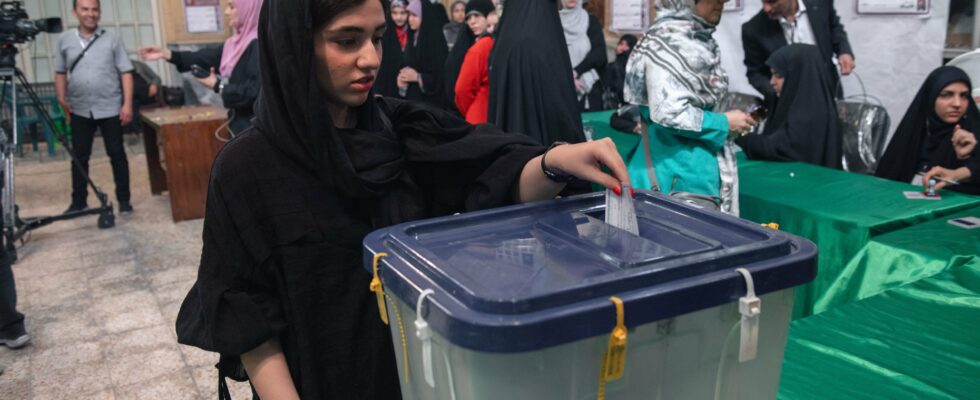The reformer candidates Massoud Pezeshkian and ultraconservative Saïd Jalili are qualified for the second round of the presidential election in Iran, according to results published this Saturday morning by the Ministry of the Interior.
“None of the candidates were able to obtain an absolute majority of votes” in the first round and, “therefore, the first and second candidates” will be decided by a second round on July 5, Mohsen Eslami, the spokesman for the ministry’s elections department, told reporters. Of the 14 presidential elections held since the Islamic Revolution of 1979, only one has so far been decided in the second round, in 2005.
Of the 24.54 million ballots counted, MP Massoud Pezeshkian received 10.41 million votes, or 42%. He is ahead of Saïd Jalili, former nuclear negotiator, who obtained 9.47 million (38%). Far behind, the fourth candidate, Mostafa Pourmohammadi, the only cleric in the running, obtained 206,397 votes.
This election was hastily organized after the death of conservative President Ebrahim Raïssi in a helicopter accident on May 19. It is closely followed abroad while Iran, a heavyweight in the Middle East, is at the heart of several geopolitical crises, from the war in Gaza to the nuclear issue, in which it opposes Western countries.
Only 24.54 million (40%) turned out despite the call launched on Friday by the highest authority of the Islamic Republic, Ayatollah Ali Khamenei, to “take the vote seriously and participate in it”. Opponents, particularly those in the diaspora, had called for a boycott of the poll.
A high turnout was desired by the authorities while the 2021 presidential election, for which no reformist or moderate candidate had been authorized to compete, had been marked by a record abstention of 51%. Only 41% of voters voted in the legislative elections organized in March.
Very different candidates
The second round will pit two personalities with very different profiles and programs against each other. Aged 69 and a surgeon by profession, Massoud Pezeshkian is a member of parliament for Tabriz, the large city in northwestern Iran, and has limited government experience, limited to serving as Minister of Health from 2001 to 2005. in the reform government of Mohammad Khatami. He became known for his outspokenness, having not hesitated to criticize the government during the protest movement provoked by the death in detention of Mahsa Amini in September 2022. He also advocates a warming of relations between the Iran and Western countries, led by the United States, in order to lift the sanctions which are severely affecting the economy.
On the contrary, Said Jalili, 58, is in favor of an inflexible policy towards the West. He demonstrated this during the six years he led the negotiations on the Iranian nuclear program, between 2007 and 2013. Throughout his career, Said Jalili has reached key positions within the Islamic Republic with the confidence of the supreme leader, Ayatollah Khamenei. He is currently one of his two representatives on the Supreme National Security Council, the country’s highest security body.
Even before the first results, the press was taking positions on Saturday morning according to its political affiliation. “Long live hope”, headlined the reformist newspaper Sazandegi by publishing a photo of Massoud Pezeshkian, while the government daily Iran called for “voting for the authority of Iran”. Whatever the result, the election should have limited repercussions because the president has limited powers: he is responsible for implementing, at the head of the government, the broad political guidelines set by the supreme leader, who is the head of state.
